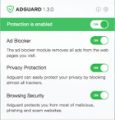What is UpdateAdmin
According to security experts, UpdateAdmin is an adware program. Adware is type of software developed to insert advertisements into your Internet browsing or even desktop experience. Adware can be developed to alter your start page, search provider, search results, or even add toolbars to your internet browser. Adware run in the background when browse the Web, and it can slow down your Apple Mac and affect its performance.
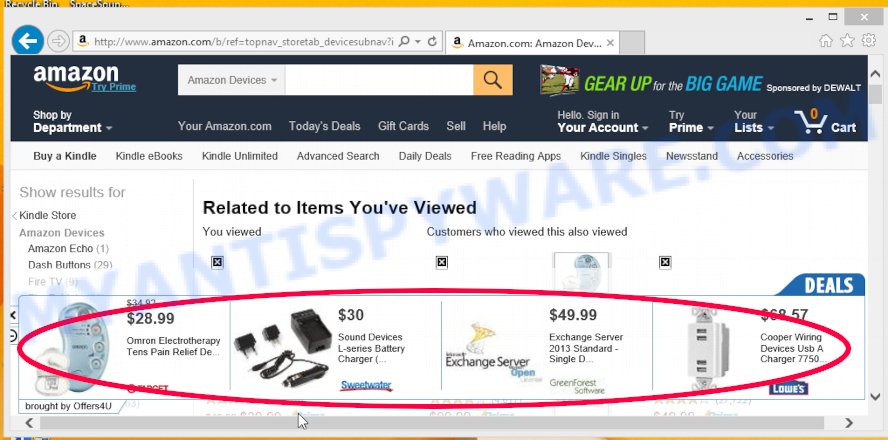
Unwanted ads
Even worse, adware can gather sensitive info, including:
- IP addresses;
- URLs visited;
- search queries/terms;
- clicks on links and ads;
- internet browser version information.
If you want to remove UpdateAdmin adware, you will not succeed, because it is very stubborn. But with the help of the following instructions, you surely can remove UpdateAdmin completely from your MAC OS.
How does UpdateAdmin get on your computer
Most of unwanted advertisements and pop-ups come from web browser toolbars and/or addons, BHOs (browser helper objects) and optional software. In many cases, these items claim itself as apps which improve your experience on the Internet by providing a fast and interactive startpage or a search provider that does not track you. Remember, how to avoid the unwanted software. Be cautious, start only reputable programs which download from reputable sources. NEVER install any unknown and suspicious programs.
Threat Summary
| Name | UpdateAdmin |
| Type | adware, potentially unwanted application (PUA), pop-up virus, pop up ads, popups |
| Symptoms |
|
| Removal | UpdateAdmin removal guide |
How to Remove UpdateAdmin adware (removal steps)
Most often adware software requires more than a simple uninstall with the help of the Finder in order to be fully deleted. For that reason, our team developed several removal methods which we have combined in a detailed guide. Therefore, if you’ve the UpdateAdmin app/extension on your Mac and are currently trying to have it uninstalled then feel free to follow the step-by-step instructions below in order to resolve your problem. Certain of the steps will require you to reboot your computer or shut down this web-site. So, read this instructions carefully, then bookmark this page or open it on your smartphone for later reference.
To remove UpdateAdmin, complete the following steps:
- Remove unwanted profiles on Mac device
- Check the list of installed applications
- Remove UpdateAdmin related files and folders
- Scan your Mac with MalwareBytes
- Remove UpdateAdmin from Safari, Chrome, Firefox
- How to stay safe online
- Finish words
Remove unwanted profiles on Mac device
UpdateAdmin can install a configuration profile on the Mac system to block changes made to the browser settings. Therefore, you need to open system preferences, find and delete the profile installed by the adware.
Click Apple menu ( ![]() ) > System Preferences.
) > System Preferences.
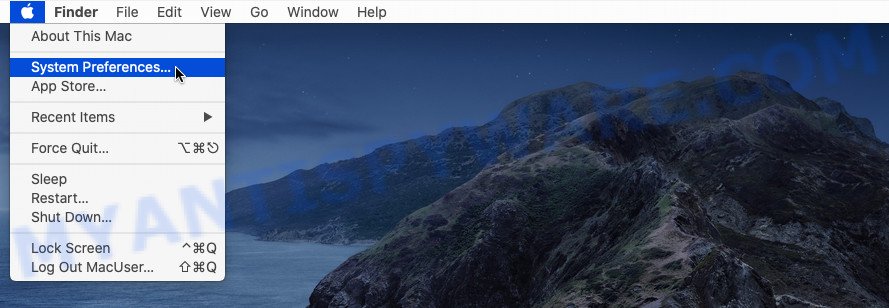
In System Preferences, select Profiles. if there is no Profiles in the list of preferences, that means there are no profiles installed on the Mac computer. If there is Profiles in the list, then click on it, then select a profile related to UpdateAdmin.
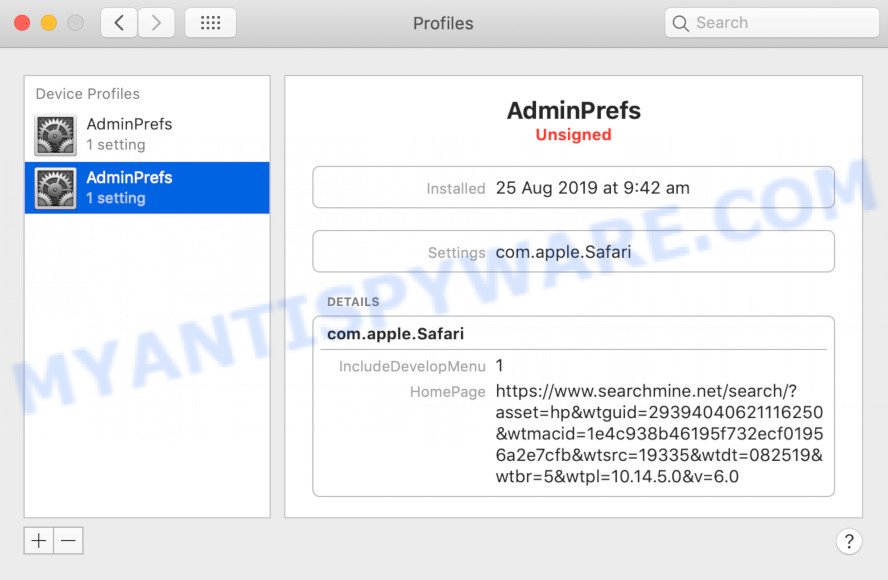
To delete a malicious profile, click on the minus button ( – ) located at the bottom-left of the Profiles screen.
Check the list of installed applications
Go to the Finder and uninstall questionable software, all programs you don’t remember installing. It’s important to pay the most attention to programs you have recently installed. If you do not know what a program does, look for the answer on the World Wide Web.
Open Finder and click “Applications” as displayed below.
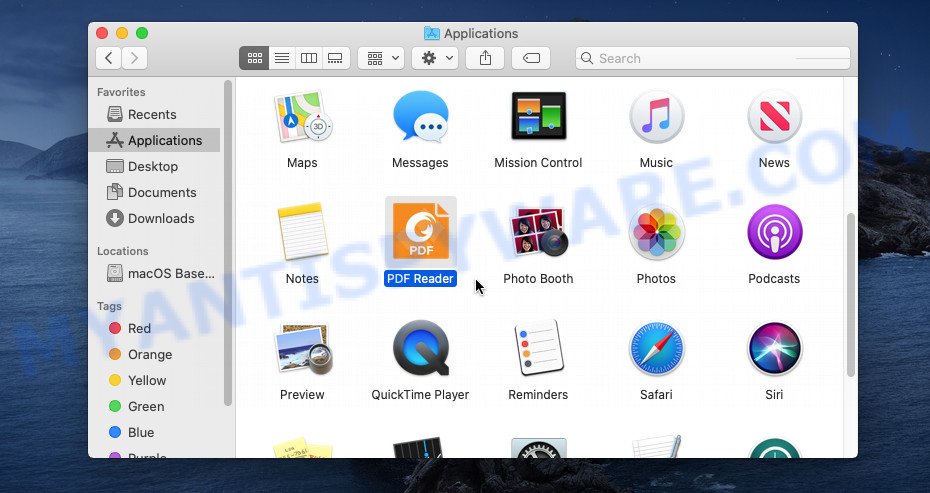
You will see a list of apps installed on your MAC OS. We recommend to pay maximum attention to the program you installed last. Most likely, it’s the UpdateAdmin adware. If you are in doubt, you can always check the program by doing a search for her name in Google, Yahoo or Bing.
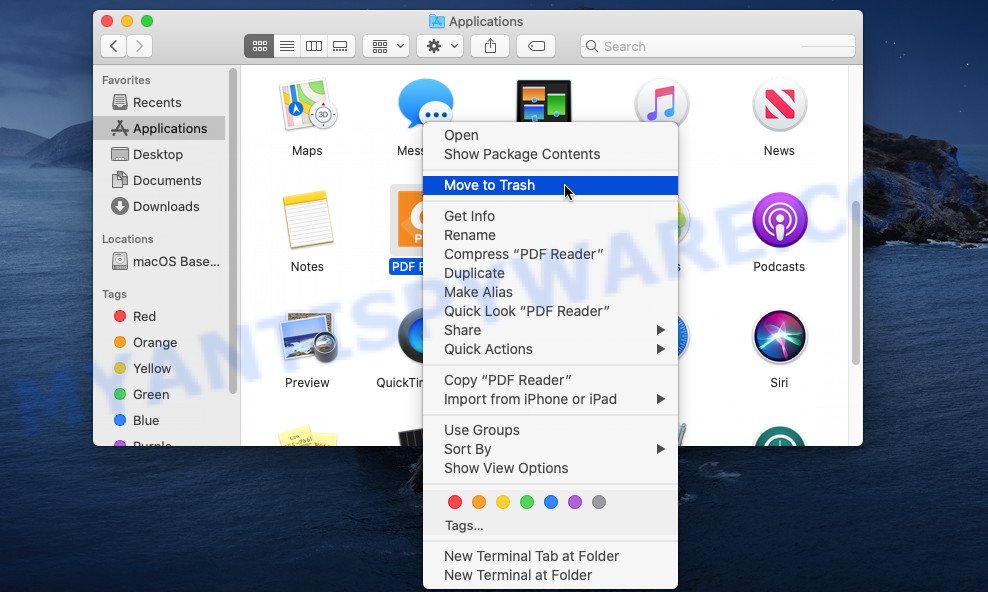
When the program which you need to remove is found, simply right click on its name, and select “Move to Trash”.
Don’t forget, choose Finder, then “Empty Trash”.
Remove UpdateAdmin related files and folders
Now you need to try to find UpdateAdmin related files and folders, and then delete them manually. You need to look for these files in certain directories. To quickly open them, we recommend using the “Go to Folder…” command.
Click on the Finder icon. From the menu bar, select Go and click “Go to Folder…”. As a result, a small window opens that allows you to quickly open a specific directory.

Check for UpdateAdmin generated files in the /Library/LaunchAgents folder

In the “Go to Folder…” window, type the following text and press Go:
/Library/LaunchAgents
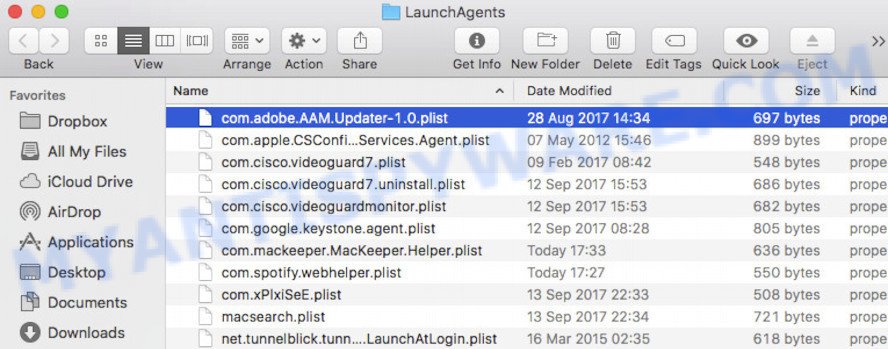
This will open the contents of the “/Library/LaunchAgents” folder. Look carefully at it and pay special attention to recently created files, as well as files that have a suspicious name. Move all suspicious files to the Trash. A few examples of files: UpdateAdmin.plist, installapp.plist, macsearch.plist, com.machelper.plist and search.plist. Most often, adware, PUPs and browser hijackers create several files with similar names.
Check for UpdateAdmin generated files in the /Library/Application Support folder

In the “Go to Folder…” window, type the following text and press Go:
/Library/Application Support
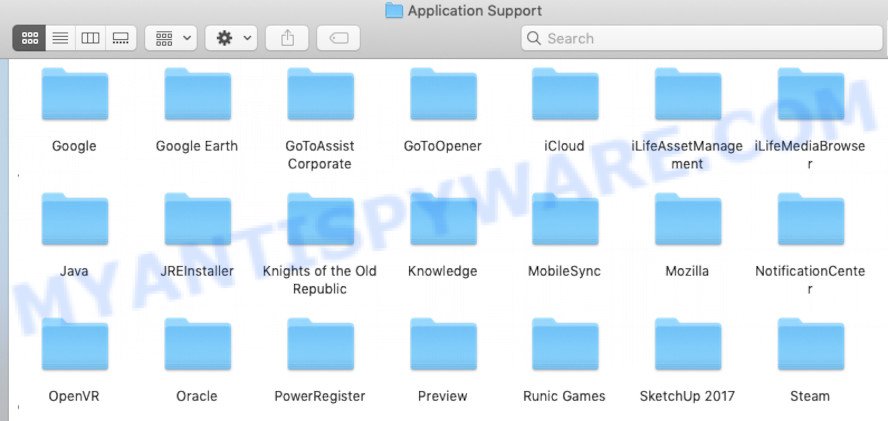
This will open the contents of the “Application Support” folder. Look carefully at its contents, pay special attention to recently added/changed folder. Move all suspicious folders to the Trash.
Check for UpdateAdmin generated files in the “~/Library/LaunchAgents” folder

In the “Go to Folder…” window, type the following text and press Go:
~/Library/LaunchAgents

Proceed in the same way as with the “/Library/LaunchAgents” and “/Library/Application Support” folders. Look for suspicious and recently added files. Move all suspicious files to the Trash.
Check for UpdateAdmin generated files in the /Library/LaunchDaemons folder
In the “Go to Folder…” window, type the following text and press Go:
/Library/LaunchDaemons

Carefully browse the entire list of files and pay special attention to recently created files, as well as files that have a suspicious name. Move all suspicious files to the Trash. A few examples of files to be deleted: com.macsearch.plist, com.search.plist, com.machelper.plist, com.installapp.plist and com.UpdateAdmin.plist. In most cases, adware, potentially unwanted programs and browser hijackers create several files with similar names.
Scan your Mac with MalwareBytes
You can delete UpdateAdmin related files automatically through the use of MalwareBytes AntiMalware. We recommend this free malicious software removal tool because it may easily delete toolbars, browser hijackers, adware and potentially unwanted programs with all their components such as files, folders and system entries.
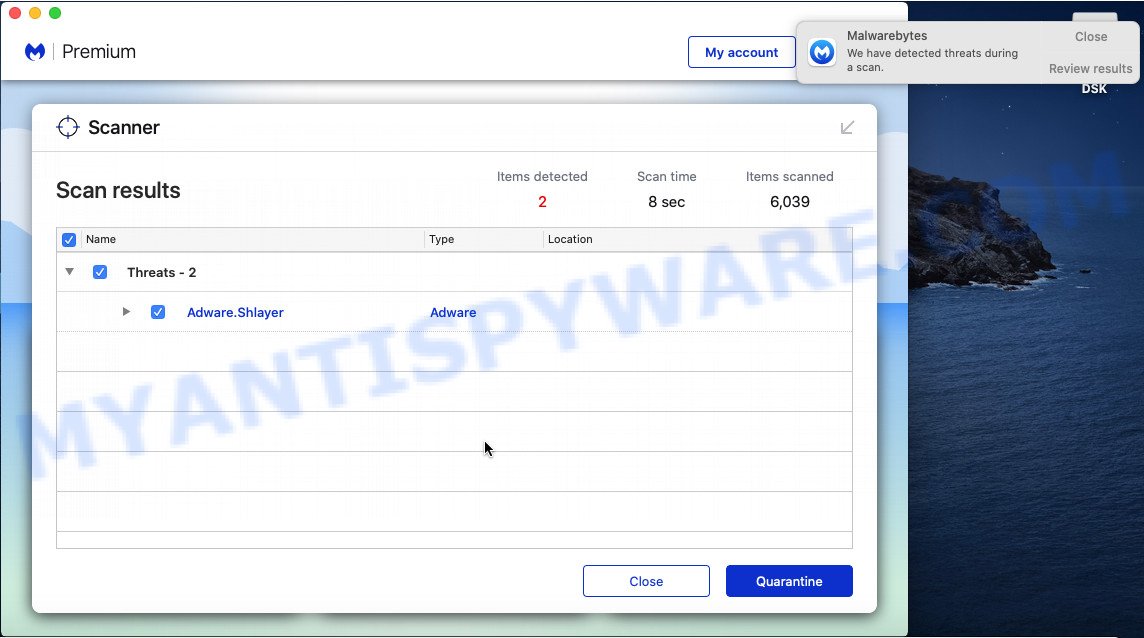
- Installing the MalwareBytes Free is simple. First you will need to download MalwareBytes AntiMalware on your computer from the following link.
Malwarebytes Anti-malware (Mac)
20938 downloads
Author: Malwarebytes
Category: Security tools
Update: September 10, 2020
- Once the download is complete, please close all apps and open windows on your computer. Run the downloaded file. Follow the prompts.
- The MalwareBytes will start and show the main window.
- Further, click the “Scan” button to look for UpdateAdmin adware. When a threat is detected, the count of the security threats will change accordingly.
- When the scan get finished, MalwareBytes Anti-Malware will display a screen which contains a list of malware that has been detected.
- Make sure all items have ‘checkmark’ and press the “Remove Selected Items” button.
- Close the Anti-Malware and continue with the next step.
Remove UpdateAdmin from Safari, Chrome, Firefox
Annoying UpdateAdmin adware or other symptoms of adware in your web browser is a good reason to find and remove harmful add-ons. This is an easy method to restore internet browsers settings and not lose any important information.
You can also try to remove UpdateAdmin by reset Chrome settings. |
If you are still experiencing issues with UpdateAdmin removal, you need to reset Mozilla Firefox browser. |
|
How to stay safe online
We suggest to install an ad blocking application. The adblocker utility like AdGuard is a program which basically removes advertising from the Internet and stops access to malicious web-sites. Moreover, security experts says that using ad-blocker programs is necessary to stay safe when surfing the Net.
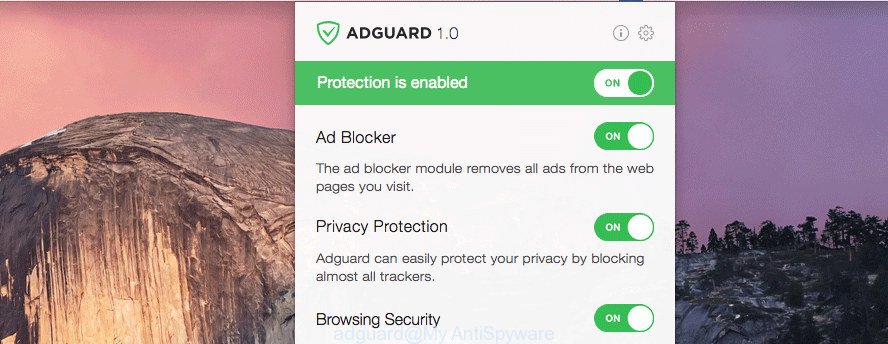
Installing the AdGuard is simple. First you’ll need to download AdGuard on your machine from the following link.
3750 downloads
Author: © Adguard
Category: Security tools
Update: January 17, 2018
After downloading is complete, run the downloaded file. The “Setup Wizard” window will show up on the computer screen.
Follow the prompts. AdGuard will then be installed. A window will show up asking you to confirm that you want to see a quick guide. Click “Skip” button to close the window and use the default settings, or click “Get Started” to see an quick tutorial which will help you get to know AdGuard better.
Each time, when you start your Apple Mac, AdGuard will launch automatically and stop undesired pop up ads, block harmful and misleading web pages.
Finish words
Now your MAC system should be clean of the UpdateAdmin adware. We suggest that you keep AdGuard (to help you block unwanted pop-up ads and undesired malicious web-sites) and MalwareBytes AntiMalware (MBAM) (to periodically scan your MAC for new adwares and other malicious software).
If you are still having problems while trying to delete UpdateAdmin ads from the Google Chrome, Safari and Firefox, then ask for help here here.

